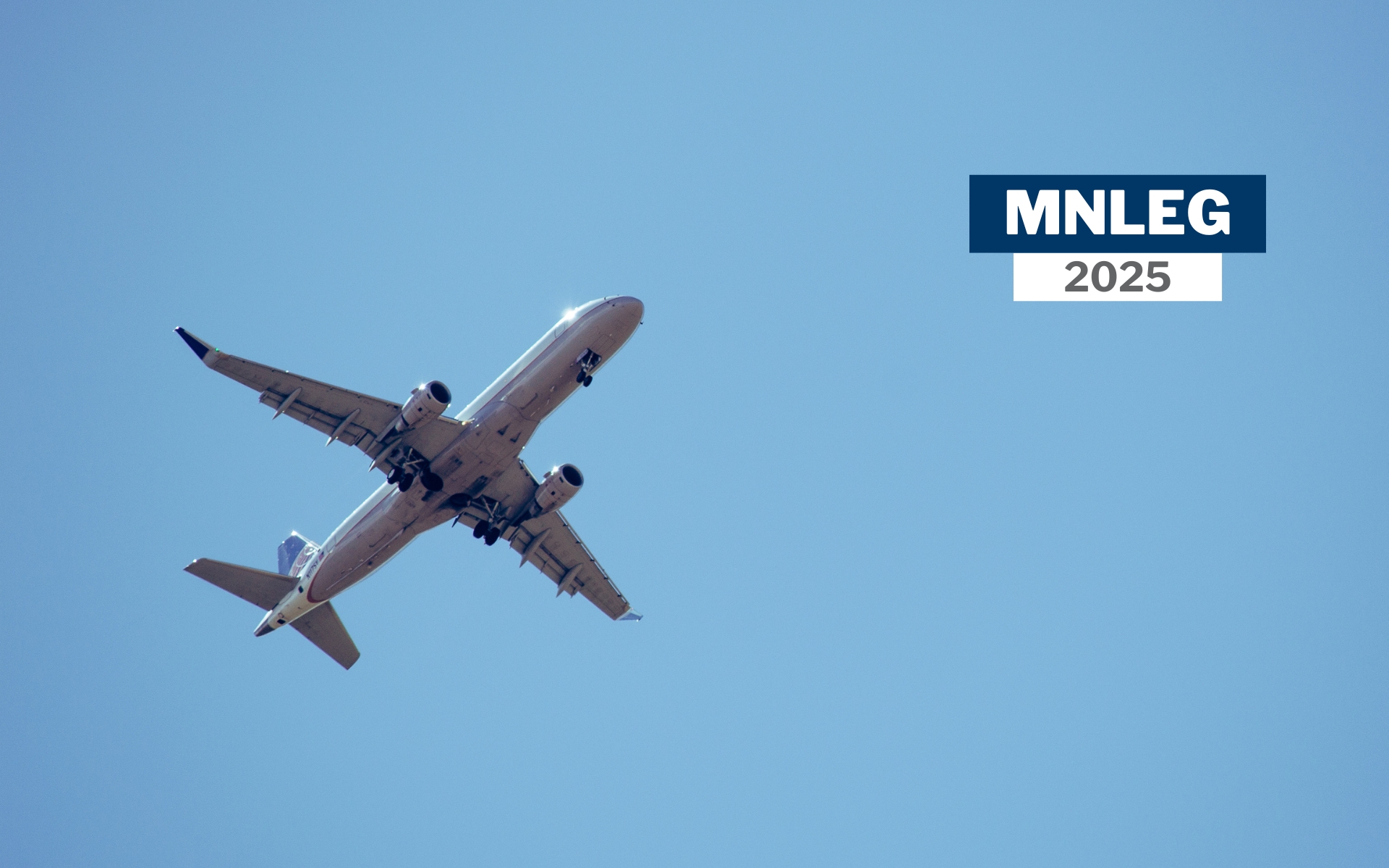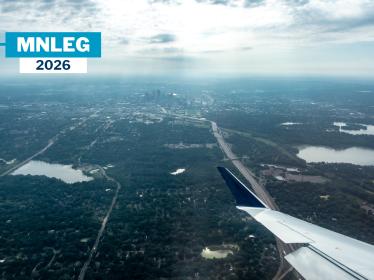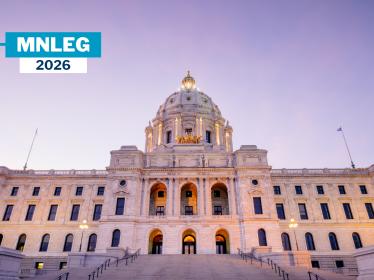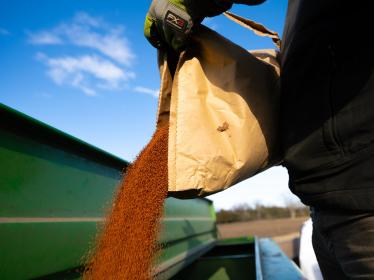Making Minnesota’s SAF tax credit more sustainable

Winter-hardy oilseeds are our most sustainable near-term option for a more sustainable jet fuel. (Photo via Canva)
June 16, 2025 update: Check out FMR's post-session legislative roundup to see how this and other priorities fared.
One method of influencing the impact of sustainable aviation fuel on the environment is through state-level SAF tax policy.
If done well, these types of state-level SAF incentives can help improve water quality, biodiversity, and farm prosperity while reducing greenhouse gas emissions in both the agricultural and transportation sectors. However, if done poorly, state SAF incentives could undermine progress toward our shared sustainability goals.
Legislation introduced during the 2025 legislative session aimed to adjust Minnesota’s existing state SAF tax incentive, which provides a state tax credit for producing or blending SAF in the state between July 1, 2024, and June 30, 2030. The initial legislation enhanced and extended the tax credit, and included important new language that rewards the lowest-carbon fuels with a higher tax credit.
However, we recognized that more could be done. Throughout the session, we worked alongside environmental stakeholders to connect with industry leaders, aviation interests, agricultural groups, state agencies and others to pursue several more improvements to the SAF tax credit.
Together, we were able to come to an agreement on four important improvements to the state SAF tax credit. We were excited to see them included in the Senate version of the Omnibus Tax Bill (SF 2374).
Each of these changes (which you can read more about below) represents an important environmental guardrail for SAF production in Minnesota. Even better, they would have no impact on the state budget.
A closer look at the environmental guardrails
Here are the environmental guardrails we successfully got added to the bill language:
1. Preventing domestic land use change
SAF made from crops and crop residue can only qualify for the state tax credit if grown on lands cleared or cultivated prior to December 19, 2007. This reduces the risk of forestlands, grasslands, wetlands, and other natural lands being converted into farmland for SAF production.
The bill language: "Sustainable aviation fuel means liquid fuel that: (1) is derived from: (i) biomass, as defined in section 41A.15, subdivision 2e…..provided that any agricultural feedstocks are from planted crops and crop residue harvested from agricultural land cleared or cultivated any time prior to December 19, 2007, that is either actively managed or fallow…"
2. Domestic feedstocks only
SAF made from imported feedstocks is ineligible. This approach further restricts the use of palm oil and other foreign feedstocks that can contribute to international deforestation.
The bill language: "Sustainable aviation fuel means liquid fuel that: (1) is derived from: (i) biomass…that is produced in the United States…"
3. Preventing Enhanced Oil Recovery
SAF producers that use captured carbon dioxide in enhanced oil recovery projects are ineligible for the tax credit. This prevents state dollars from incentivizing regional EOR projects.
The bill language: "A qualifying taxpayer may claim a tax credit…provided that carbon oxides sequestered as part of the production process are not used as a tertiary injectant in a qualified enhanced oil recovery project."
4. Including diverse hydrogen-based solutions
The bill allows low-carbon hydrogen-based SAF to be eligible for the tax credit, ensuring that diverse hydrogen-based strategies like "green hydrogen" are included in the SAF economy. The specific language aligns with other state and federal definitions for low-carbon hydrogen.
The bill language: "Sustainable aviation fuel means liquid fuel that is derived from…(iii) hydrogen that has a carbon intensity not greater than four kilograms of carbon dioxide equivalent per kilogram of hydrogen produced."
A disappointing disappearance from the final tax bill
Unfortunately, these improvements fell victim to political trade-offs during negotiations ahead of a planned special session. Neither the tax credit funding nor budget-neutral SAF policy improvements were included in the final tax bill agreement.
While we are deeply disappointed that these common-sense environmental guardrails were excluded from this year’s tax bill, the work to ensure SAF policy aligns with FMR's broader conservation goals continues.
FMR is committed to working with cross-sector partners to ensure the full suite of SAF tax credit improvements advances during the 2026 legislative session.
Prior updates
March 11: Enhanced tax credit could boost most-sustainable aviation fuel options
Several bills have come forward during this session that aim to enhance Minnesota’s existing state tax incentive for sustainable aviation fuel, also referred to as SAF.
These bills would expand and extend the existing SAF tax credit, and improve it in part by rewarding the lowest-carbon SAF options with an additional tax incentive.
If done well, these types of state-level SAF incentives can help improve water quality, biodiversity and farm prosperity while reducing greenhouse gas emissions in both the agricultural and transportation sectors. However, if done poorly, a state SAF strategy could undermine progress toward other sustainability goals.
We're advocating for SAF strategies that align with our guiding principles, with a particular focus on large-scale, near-term investments in feedstocks like camelina and pennycress — two types of winter-hardy oilseed being developed by the University of Minnesota’s Forever Green Initiative.
As explained in a recent MPR News story, these innovative cropping systems provide low-carbon SAF while helping to protect water quality, soil health and wildlife. Better still, farmers who grow them can diversify their income streams and increase farm profitability.
Winter-hardy oilseeds are more than just low carbon — they are our most sustainable near-term option.
We look forward to working with lawmakers as well as leadership from the Minnesota SAF Hub, Delta Airlines, state agencies, agricultural interests and other sustainability stakeholders to explore opportunities to help ensure camelina and pennycress have a place in our state’s SAF strategy.


